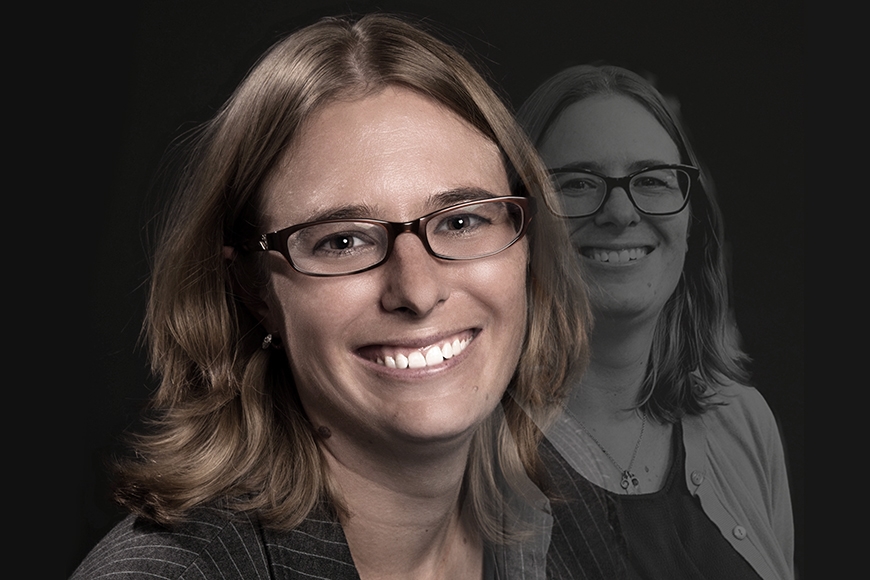The Truth Does Set You Free
Emily Vraga (Don and Carole Larson Professorship in Health Communication and associate professor of journalism and mass communication) asks questions about how people come to learn about issues of public importance and the ways in which communication can foster a better society. Her research focuses on how people come to understand news and information on contentious health, science, and political issues, and especially on how people navigate disagreement about these issues and misinformation on a range of health topics on social media.
I love asking (and sometimes answering) questions about how people come to learn about issues of public importance and the ways in which communication can foster a better society. More specifically, my research focuses on how people come to understand news and information on contentious health, science, and political issues, and especially on how people navigate disagreement about these issues and misinformation on a range of health topics on social media. How do we interpret information that does not agree with our predispositions? What can we do to ensure we are accurately distinguishing between high-quality and low-quality information online? How can we recognize and correct misinformation when we see it? How do we communicate with others who have differing viewpoints or who may be misinformed about a topic?
The digital media environment has made it even more important to understand how audiences respond to and perceive fragmented and ever-more diverse media messages. Because we have frequently seen posts from people who are different from us—the distant friends, family, and acquaintances that we friend or follow on social media, but do not often communicate with offline—there is the potential for exposure to more diverse views on social media than in other spaces.
There are so many possible uses of social media—my own work has examined how protest movements are using social media for online activism, the prevalence of health and political misinformation and correction on social media, and the norms of online expression when it comes to discussing contentious topics.
I focus on research that addresses practical problems that arise from social media use among a public that feels more divided than ever. I investigate methods to encourage more high-quality information consumption and production on social media.
Although misinformation on social media is a real problem, seeing corrections of health misinformation on social media can be effective in reducing misperceptions among those seeing the interaction. These corrections can come from expert organizations, from the platforms themselves, and from ordinary unknown social media users, offering a space where the public can serve to improve the information environment. Therefore, immediate correction offers a useful tool to react to misinformation on social media.
In addition, news literacy may offer a proactive solution that can be deployed to build a more resilient population. My work into news literacy suggests that reminding people of their own biases can help them be more fair news consumers, but it can be difficult to encourage skepticism of misinformation without generating cynicism towards all information.
Additionally, news literacy messages can also sometimes reinforce partisan divides. While news literacy holds promise, more work needs to be done to consider how news literacy knowledge intersects with self-efficacy, perceptions of social norms, and attitudes to encourage people to respond to misinformation and be receptive to corrections when they see them online.
Emily Vraga
